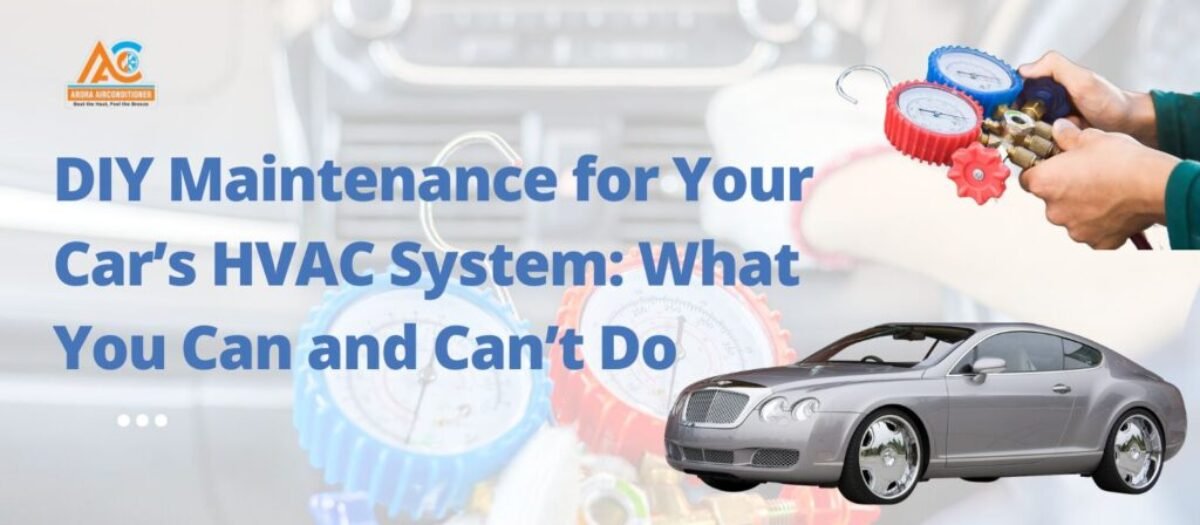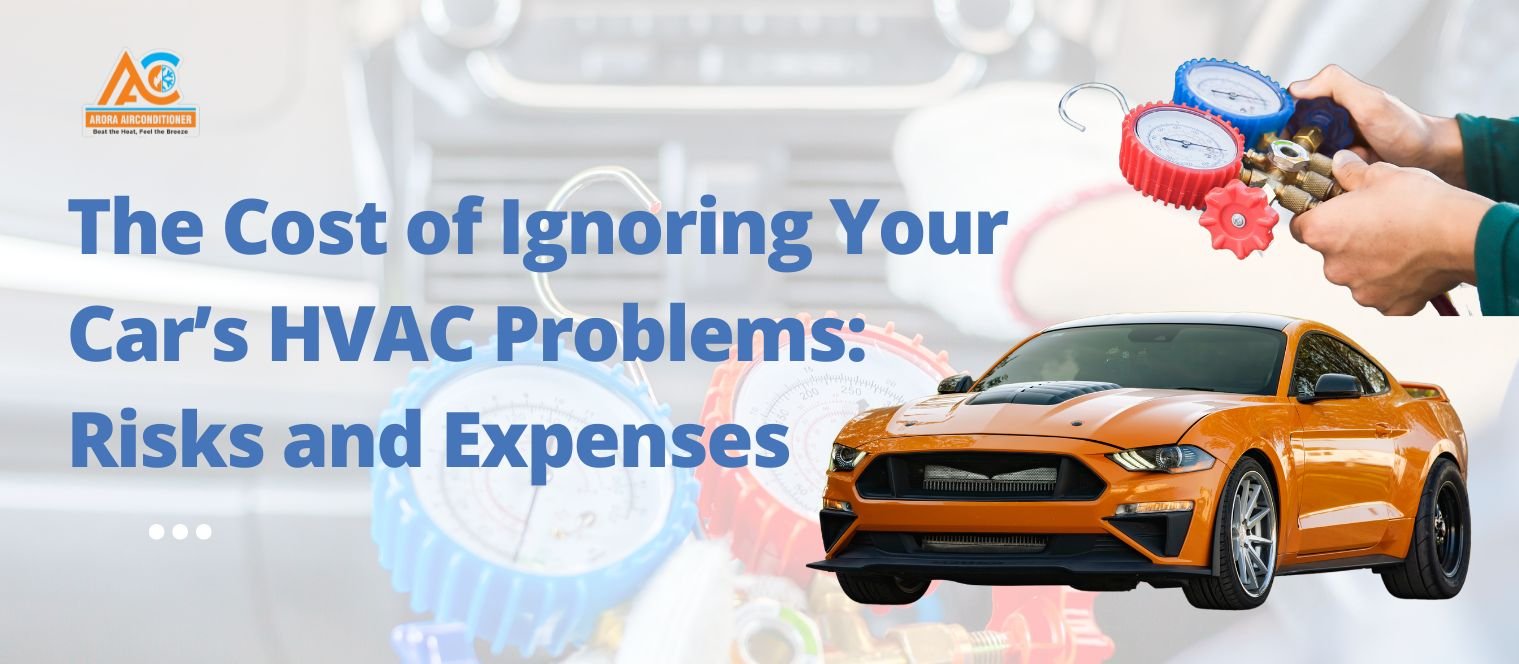The heating, ventilation, and air conditioning (HVAC) system in your vehicle is a crucial component of your driving experience. Your HVAC system keeps the cabin at a pleasant temperature whether you’re traveling in the summer heat or the winter cold. To keep it functioning properly, though, it requires routine maintenance, just like any other system.
What You Can Do: Simple DIY Maintenance Tasks
A professional technician is not always necessary to maintain your car’s HVAC system. Here are some simple upkeep duties you may perform on your own to guarantee that your system keeps operating effectively:
1. Replacing the Cabin Air Filter
- Why It’s Important: Your car’s interior air circulation is made cleaner by the cabin air filter. As dirt, dust, and allergens build up over time, ventilation and quality may suffer. The performance of your HVAC system can be enhanced and fresh air can be guaranteed in your cabin by replacing a blocked filter.
- How to Do It: Accessing the cabin air filter is typically simple. It is usually found beneath the dashboard or behind the glove box. Just take out the old filter and put a fresh one in its place. It is advised to have it replaced every 12,000 to 15,000 miles or as directed by the owner’s manual.
2. Cleaning the Vents
- Why It’s Important: Dust and debris can build up in the vents over time, obstructing airflow and lowering air quality. A cleaner cabin and improved airflow are guaranteed when the vents are kept clean.
- How to Do It: Using a microfiber cloth, clean the vents to get rid of dust and dirt. Use a can of pressurized air to force out any particles or dirt that has become lodged inside for a deeper clean. Take care to prevent harming the vent slats.
3. Checking the AC Drain Line
- Why It’s Important: Condensation produced by your air conditioner is often drained away through a tube beneath the vehicle. A clogged drain line may cause water to accumulate within the cabin, which could encourage the formation of mold or mildew..
- How to Do It: Under your car, usually close to the passenger side, locate the AC drain line. A puddle of water accumulating inside your car could indicate that the drain is clogged. Clear the drain line gently with a tiny wire or pipe cleaner.
4. Inspecting for Refrigerant Leaks
- Why It’s Important: If the air conditioner in the car isn’t working properly, there may be a refrigerant leak. Oily patches near the compressor or condenser are indicators of leaks that can be found visually.
- How to Do It: Look for any indications of refrigerant leaks in the compressor and hoses while the engine is off. It’s preferable to arrange for a service with a qualified expert to repair the leak and recharge the system if you discover one.
What You Can’t Do: Tasks Best Left to Professionals
You can perform some maintenance tasks on your own, but some repairs require specialized knowledge and tools. Doing these tasks by yourself could lead to greater damage or costly repairs. It is advisable to leave the following duties to skilled technicians:
1. Recharging the Refrigerant
- Why You Shouldn’t Do It:The HVAC system in your automobile uses refrigerant to chill the air. The system won’t cool as efficiently if the refrigerant levels are low. The right kind of refrigerant and specialized equipment are needed for the sensitive process of refrigerant recharge.
- Why It’s Best Left to Professionals: Recharging refrigerant requires proper handling to avoid overcharging or using the wrong type of refrigerant. A licensed technician has the knowledge and tools to do this job safely and efficiently.
2. Fixing the Compressor
- Why You Shouldn’t Do It: The essential component of your air conditioning system is the compressor. It circulates the refrigerant throughout the system after compressing it. The complete HVAC system may not function correctly if the compressor is broken.
- Why It’s Best Left to Professionals: Parts of the HVAC system must be disassembled in order to replace or repair the compressor, which calls for specialized knowledge and tools. If necessary, a professional can replace the compressor after precisely diagnosing the problem.
3. Replacing the Expansion Valve or Orifice Tube
- Why You Shouldn’t Do It: The refrigerant flow into the evaporator is controlled by the expansion valve or orifice tube. Your HVAC system won’t function well if either of these parts breaks.
- Why It’s Best Left to Professionals: These parts are difficult to reach and need to be replaced precisely. A specialist will guarantee that the system is correctly refilled and that the appropriate parts are used.
4. Repairing Electrical Issues
- Why You Shouldn’t Do It: Motors, sensors, and wiring are just a few of the numerous electrical components used in modern HVAC systems. It’s recommended to let a professional handle repairs if you discover that your blower motor isn’t functioning or that an electrical malfunction is causing your system to malfunction.
- Why It’s Best Left to Professionals: If electrical issues are not fixed correctly, they may become dangerous. To properly diagnose and fix electrical problems, a professional technician has the necessary equipment and expertise.
Conclusion
Your car’s HVAC system is essential for comfort, and proper maintenance will ensure it lasts for many years. While you can handle simple tasks like replacing filters and cleaning vents, complex repairs such as recharging refrigerant and fixing compressors should be handled by a professional.
FAQ
- What does a car HVAC system do?
The HVAC system in your car regulates the cabin’s temperature, humidity, and airflow. By offering heating in the winter and cooling in the summer, it guarantees a comfortable atmosphere. - Can I recharge my car’s AC refrigerant myself?
Although there are certain do-it-yourself kits for refrigerant recharge, it is not advised. The right kind of refrigerant and careful handling are necessary for recharge. The system may be harmed by overcharging or using the incorrect refrigerant. An expert like Arora Air Conditioner is the finest person to perform this. - How often should I replace the cabin air filter?
Generally speaking, the cabin air filter should be changed every 12,000 to 15,000 miles or as directed by your vehicle’s manual. You might need to replace it more frequently if you drive in a region that is dusty or polluted. - Why is my car’s AC blowing warm air?
Low refrigerant levels, a malfunctioning compressor, or a clogged condenser could be the cause of this. Look for obvious problems, such as refrigerant leakage, but call a qualified technician for a precise diagnosis and repair. - How do I clean my car’s AC vents?
To remove dirt and debris from deeper inside the vents, use compressed air and a microfiber cloth to wipe the vent slats. Maintaining proper circulation and air quality requires routine cleaning.




